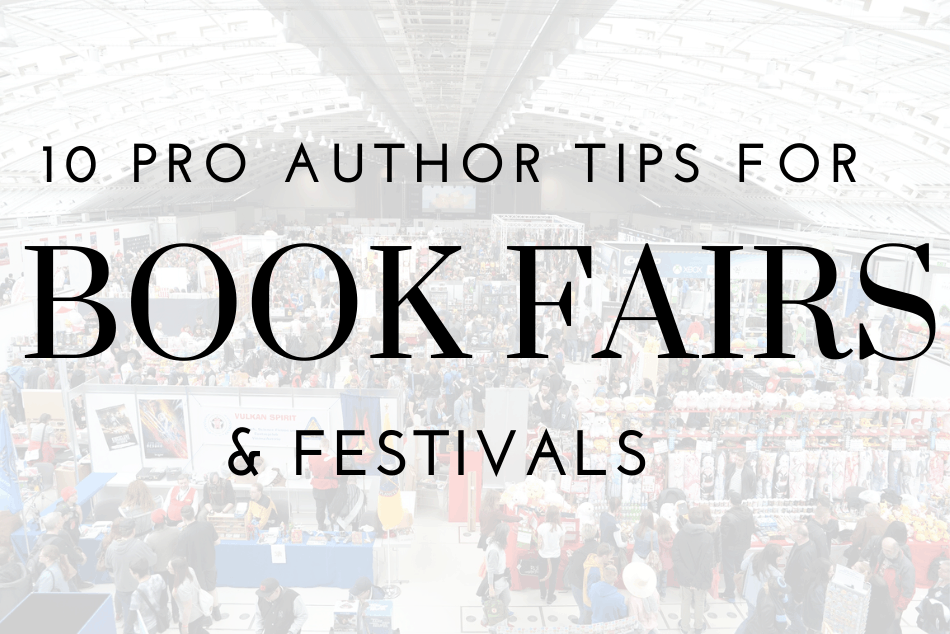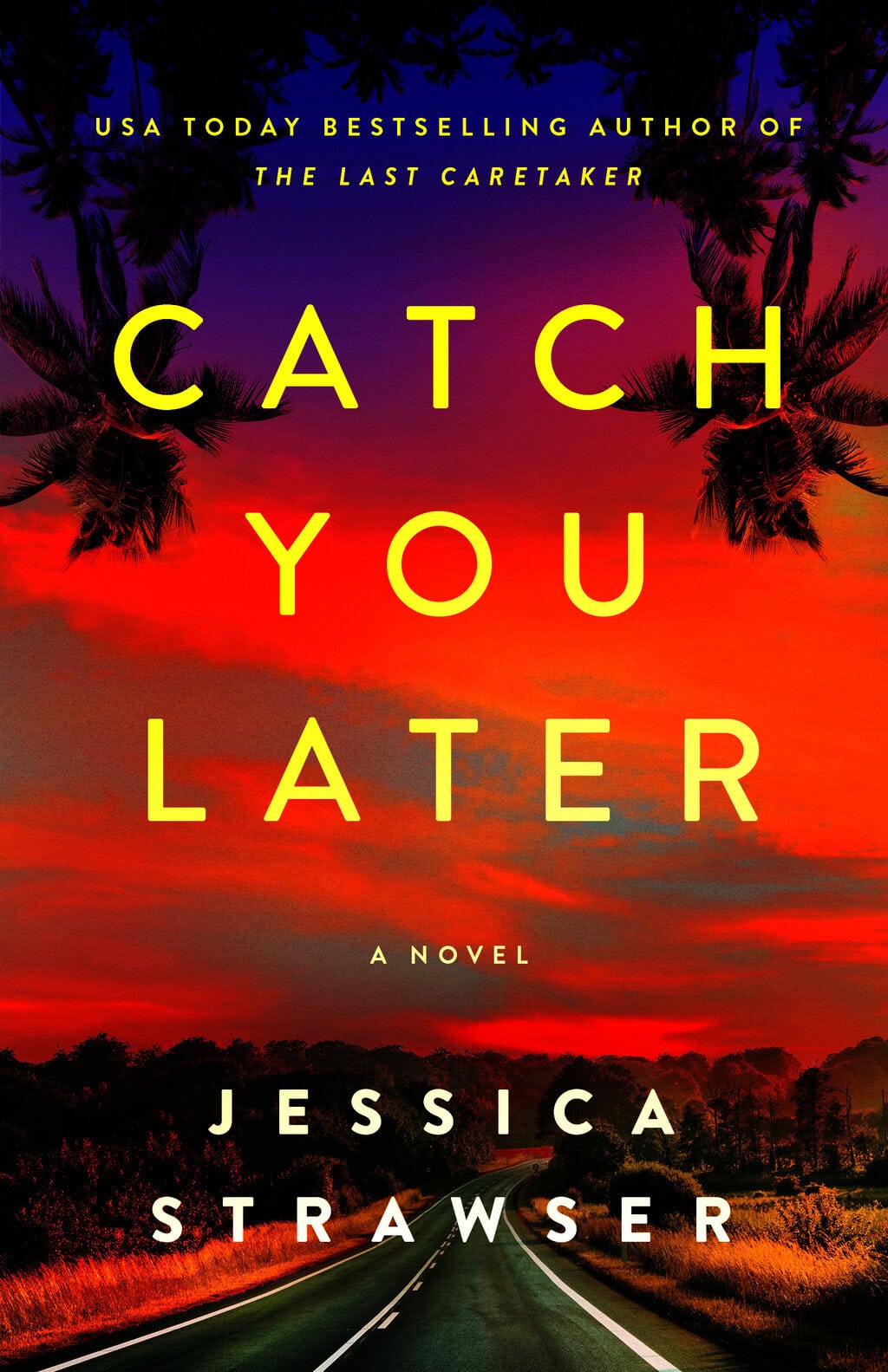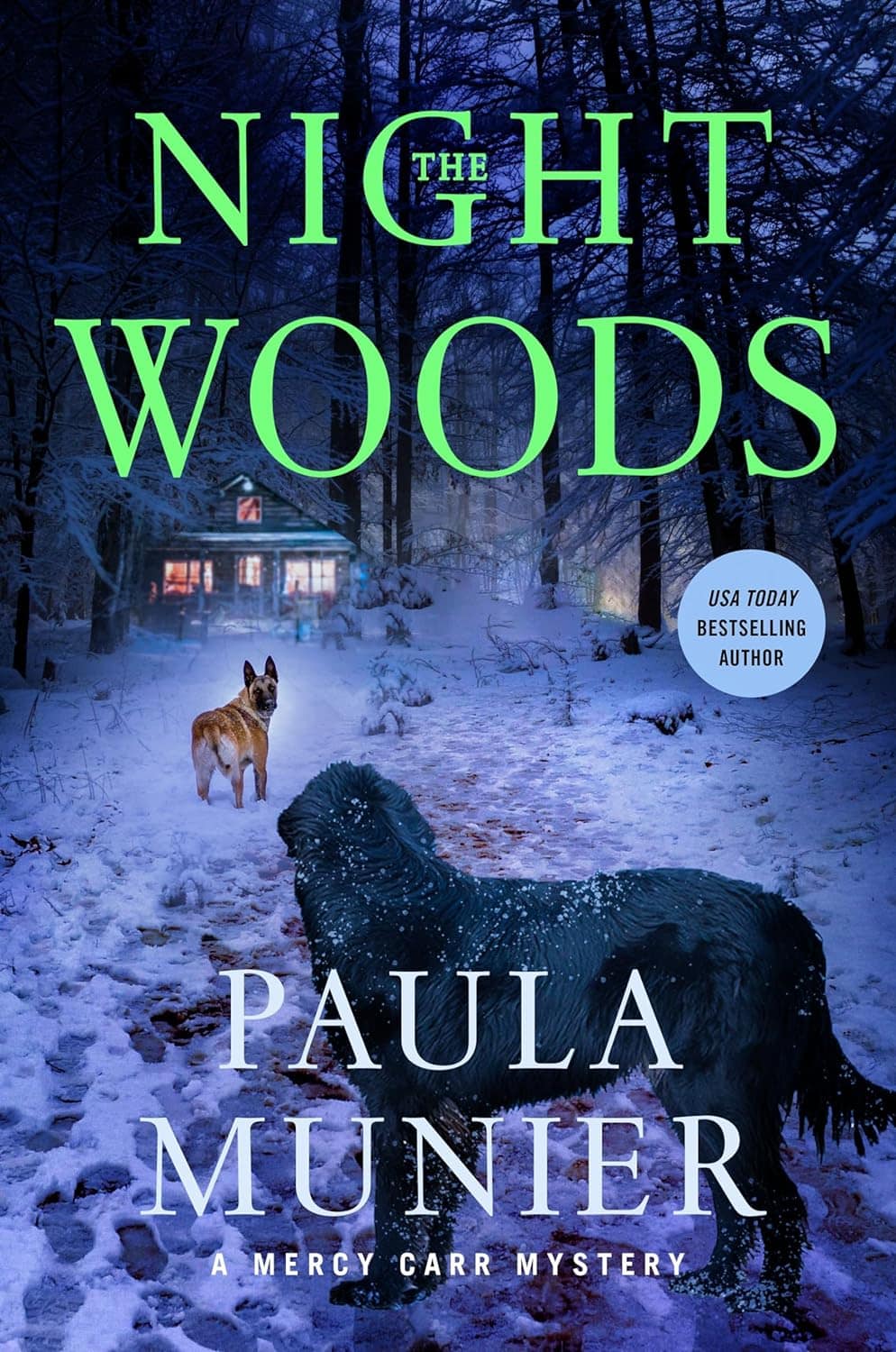Whether publishing with a big publisher, a small press, or independently, sooner or later we all find ourselves staring down our first book fair appearance (or, sometimes, dreading our next one). While they’re held year-round, spring and fall seem to be the busiest seasons for them.
Unlike themed “cons” for, say, mystery or romance fans, book fairs and book festivals are regional gatherings of authors and booklovers, usually at a conference or convention center, university campus, or large public library. (For example, my home state of Ohio has three big annual fairs: Books by the Banks in Cincinnati, Ohioana Book Festival in Columbus (coming up soon!), and the Buckeye Book Fair in Wooster.)
Authors apply to attend (book fairs have eligibility guidelines; some are invitation only), then spend the big day (usually a Saturday) exhibiting at designated tables. A website announces participating authors, featured new releases, and any schedule of panels/talks, and an event program at the door does the same. Admission for the reading public is typically free, with activities for kids and teen readers.
If you’re doing your homework, you’ll likely have attended at least a couple of book fairs as a reader before you’re ready to participate as an author …
But that doesn’t mean you’ll know what to expect.
My first book festival was a surprisingly uncomfortable experience. I felt as if I were running a booth at a craft show where all the other artists knew something I didn’t. I had only one book available, a pricey hardcover, and quickly learned how awkward it can be to sit and watch while people skim your jacket copy and move on. Nothing like giving up your weekend with your family and friends to drive a few hours from home, sit at a table all day long, and sell only a handful of books.
Fortunately, I didn’t stop there. As with your publishing career itself, your success at events like these will build over time: I now have more books to fill my table, and more readers who are familiar with my work, and more friends among my fellow exhibitors: In short, more to do and say. But I’ve also learned plenty of tips I wish I’d known from the start.
Here’s how to handle book fairs like a pro, even if it’s your first time out.
1. Stand up.
There is a chair at your table, so your inclination will be to sit in it. But when foot traffic starts to file through, stand up. People will be more likely to catch your eye, exchange pleasantries, and stop and ask about your book. You will sell more books if you stand up, period.
2. Know your lines.
At my floundering first book fest, I sat next to an author who told everyone who glanced her way, “I write mysteries set in the South.” (Shout out to my smart table mate Mary Ellis!) More often than not, people would stop: “Ooh, Charleston? Savannah? I went on the best vacation…” Darn, I thought, I need a line.
Yes. I did.
“I write national bestsellers set close to home.” “My books are favorites with book clubs.” “This is a romance with about twenty shades of gray.” Be ready with one line that sums up your work in a nutshell. Once you make eye contact or greet an attendee, deliver it with a smile.
3. Offer a takeaway.
If your publisher doesn’t provide bookmarks, postcards, or other promotional swag (don’t feel bad: mine doesn’t either!), it’s worth the investment to make yourself something simple. (User-friendly sites like Vistaprint are your friend.) On a budget? Your most inexpensive option will likely be a business-card-sized takeaway with your book cover, website, and social media handles. Or perhaps you want to spring for custom pencils or something relating to your book’s topic.
The point is to give readers something to take and remember you by; this way, they can return to your table to make a purchase decision after they’ve walked the whole floor (people really do come back!), order your title from their library later, or pass to a friend who they think might enjoy your book.
4. Have a sign-up sheet.
Email lists are marketing gold. Even if you don’t have one yet, it’s not too early to start collecting addresses for when you do. A legal pad with a simple handwritten header (name, email address) will suffice. Don’t forget a pen!
5. Use a giveaway to drive signups.
If you have an ARC of your next book or another piece of cool swag available (say, a coffee mug or T-shirt relating to your subject matter), consider using it as a giveaway to drive the signups mentioned in #4: You’ll get way more takers. At the end of the day, you’ll randomly select a winner from the email list signup sheet and email them requesting their mailing address so you can send their prize.
6. Be a good neighbor.
A six- or seven-hour stretch is a long time to be sitting next to another author, and you’ll have one on each side. Make the most of the downtime between table visitors to ask about them and their work; graciously watch their stuff if they have to step away; offer to bring back a coffee on your trip to the green room. You’ll start the day as strangers and end as friends.
7. Get on a panel if you can.
On your application, you’ll be asked if you’re willing to sit on a panel: The answer is yes. Whether you’re chosen will be out of your hands, but if you do have any connections, phone them in. More visibility (to attendees and in the program) equals more books sold.
8. Don’t skip the reception or lunch.
Your goal: Make this festival worth your time, even if your sales are not stellar. That means meeting as many other authors as you can. Connections I’ve made at book fairs have led to podcast invitations, joint book signings, guest blog posts, and friendships. Avoid these rookie mistakes: skipping social opportunities out of shyness, spending the whole time clinging to one person you already know, and forgetting your business cards.
9. Support fellow authors.
Buy a book or three, or at the very least sign up for similar exhibitors’ email lists or share kind words afterward on social media about authors and books you admired. Treat others as you wish to be treated; contribute to the community you want to see thrive.
10. Start close to home.
Aim for local book fairs to start, if you can. That way, you can invite existing contacts to come see you, endear yourself to local organizers (hint: sales are often handled by an independent bookstore), minimize your travel expense and time commitment, and up your odds of having a good experience.
Have any dos or don’ts of your own to add? Comment on Facebook to keep the conversation going. And we’ll see you on the festival circuit!





